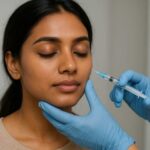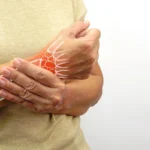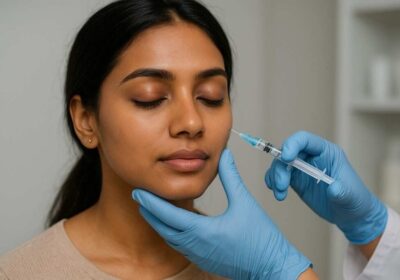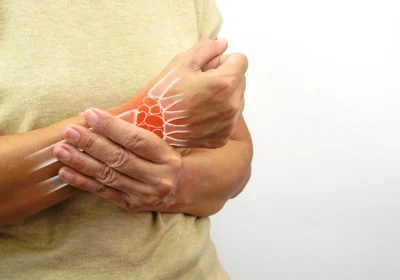
What to Expect in Your First Week After Cosmetic Surgery
From swelling to self-care — your recovery roadmap explained
The first week after cosmetic surgery is a critical part of the healing process. It’s when your body begins to adjust, repair, and reveal the first steps toward your transformation. For many patients, this period can feel overwhelming — filled with questions about what’s “normal,” how to manage discomfort, and when improvements will begin to show. At The Aesthetic Centers | The One Plastic Surgery in Newport Beach, Dr. Siamak Agha and his team provide personalized guidance so every patient feels supported and confident throughout this stage of recovery.
“Recovery isn’t just about time — it’s about care, patience, and knowing what to expect.”
The First 48 Hours: Rest and Gentle Support
Immediately following surgery, patients are monitored closely as anesthesia wears off. The first two days are usually the most challenging, as swelling, bruising, and soreness are at their peak. Most patients are surprised by how quickly the body adapts, but it’s important to rest and allow healing to begin.
During this phase, Dr. Agha recommends arranging for a trusted friend or family member to assist with basic tasks like preparing meals, managing medications, or helping you move around safely. Elevating the surgical area, whether it’s the face, abdomen, or breasts, can help reduce swelling. Cold compresses and prescribed pain medications also provide comfort while minimizing inflammation. Patients should expect to spend most of this time resting, staying hydrated, and avoiding unnecessary strain on the body.
Days Three and Four: Gradual Adjustment
By the middle of the first week, many patients notice small but important shifts in how they feel. Swelling and bruising may still be visible, but discomfort often begins to ease. This is the stage when walking light around the house is encouraged, as gentle movement helps with circulation and reduces the risk of blood clots.
It’s common to feel a mixture of progress and frustration during this period. You may be eager to see your results, yet still feel “puffy” or tight in the surgical area. This is completely normal. The body is working hard behind the scenes to repair tissues, regulate fluid buildup, and restore balance. Dr. Agha’s team schedules check-ins during this time to ensure your healing is on track and to answer any questions that may arise.
Days Five Through Seven: Signs of Progress
Toward the end of the first week, many patients begin to notice encouraging changes. While swelling and bruising remain, they are usually less pronounced, and discomfort continues to improve. Patients who have undergone facial procedures often see bruising shift in color as it begins to fade, while those recovering from body procedures may notice less tightness and improved mobility.
This is also the point when many patients regain some independence in their daily activities. You may feel comfortable preparing meals, walking longer distances around the house, or performing light tasks, but it’s still important to avoid lifting, bending, or anything that puts pressure on healing incisions. The first postoperative appointment is often scheduled around this time, giving Dr. Agha an opportunity to evaluate your progress, remove sutures or drains if necessary, and provide reassurance about your healing journey.
Managing Emotions During the First Week
The physical healing process is only part of the recovery experience. The emotional ups and downs that happen in the first week following cosmetic surgery surprise many patients. It’s not uncommon to feel impatient, self-conscious, or even regretful during this stage, especially when swelling obscures the final results. This is sometimes referred to as the “post-surgery blues,” and it’s completely normal.
Dr. Agha emphasizes the importance of patience and perspective. The final outcome of a cosmetic procedure is not visible after just one week; it may take weeks or months for swelling to fully resolve and for tissues to settle into their new contours. Knowing this in advance helps patients remain calm and focused on the bigger picture: the life-changing results to come.
Support, Guidance, and Personalized Care
At The Aesthetic Centers, patients are never alone in their recovery journey. Dr. Agha and his team provide detailed instructions, regular follow-ups, and customized aftercare plans that make the first week less daunting. From pain management protocols to nutritional recommendations that support healing, every aspect of care is designed to reduce complications and maximize comfort.
Patients are encouraged to stay in close communication with the practice during this time. Questions about swelling, incision care, or unusual sensations are always addressed promptly, giving patients the confidence they need to focus on rest and healing. This level of personalized attention is what sets Dr. Agha apart and helps patients feel empowered, even during the more challenging days of recovery.

Conclusion: The First Step Toward Transformation
Your first week after cosmetic surgery is just that — the beginning. While it may bring swelling, soreness, and a few emotional ups and downs, it also marks the start of your transformation. By following Dr. Agha’s expert guidance, practicing patience, and allowing your body the time it needs to heal, you set the foundation for results that are beautiful, natural, and lasting.
At The Aesthetic Centers in Newport Beach, Dr. Siamak Agha’s commitment to patient care ensures that this journey is as smooth and supportive as possible. With every passing day, you move closer to the outcome you’ve dreamed of — and it all begins in that first week.


















